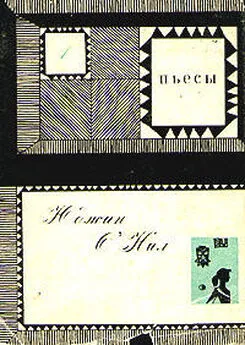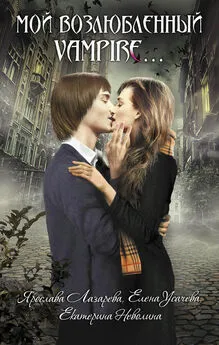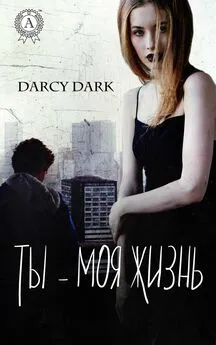Regina Jeffers - Vampire Darcy's Desire
- Название:Vampire Darcy's Desire
- Автор:
- Жанр:
- Издательство:неизвестно
- Год:неизвестен
- ISBN:нет данных
- Рейтинг:
- Избранное:Добавить в избранное
-
Отзывы:
-
Ваша оценка:
Regina Jeffers - Vampire Darcy's Desire краткое содержание
Vampire Darcy's Desire - читать онлайн бесплатно полную версию (весь текст целиком)
Интервал:
Закладка:
Darcy looked down to see a veil drawn over her expression.“A man may take pleasure in many things, Miss Elizabeth.” He did not expect the fathomless darkness of her eyes, and subconsciously his
That evening, back at Netherfield, he dreamed of Elizabeth Bennet, and they were not the terrifying dreams he often experienced when he met an attractive woman. Normally, his dreams, when he allowed himself to dream, held images of terror—blood dripping from open wounds and his inner animal overcoming him. Such horror shook his being, and he often smothered his cries of abhorrence with a pillow. But tonight, his dreams took on different overtones. He pushed a strand of hair away from Elizabeth’s face while his lips brushed hers fleetingly. She looked deeply into his eyes, and Darcy wanted the security he saw there. Then he kissed her more passionately, his tongue invading her mouth and claiming Elizabeth as his.The scene went no further, but a half-awake Darcy replayed it many times until it felt right—felt the kiss—felt the heat.“Mmm, that is nice, ” he murmured as he rolled to his left side to allow slumber to overtake him again. Surprisingly, he felt alive—felt strong—when he imagined holding Elizabeth Bennet in his arms. It was an exquisite torment; something he could desire, but something he could never do.
Elizabeth Bennet held no such fascinations for Fitzwilliam Darcy, at least, not on the surface. She had observed him all evening, watching his air of superiority—the ultimate master of Pemberley, just as her Aunt Gardiner described him. Mr. Darcy, obviously, thought his actions were above reproof—maybe even above the law.
After that evening, the word of how he snubbed her spread through the neighborhood, and her pride clouded any feelings of attraction she might hold for him.
Her mother lamented her daughter’s treatment, much to Elizabeth’s embarrassment. “But I can assure you Lizzy does not lose much by not suiting his fancy; for he is a most disagreeable, horrid man, not at all worth pleasing. So high and so conceited—he
Her father shared his surprise at the two men even being friends, in consideration of the great opposition of character. “Bingley is open and easy, and he swears by Darcy’s strength of regard and his judgment. In meeting both, I agree; Darcy is the superior. Bingley is by no means deficient, but Darcy is clever. He is also at the same time haughty, reserved, and fastidious, and his manners, although well bred, are not inviting. In that respect Mr. Bingley has greatly the advantage.”
Elizabeth agreed: “I could easily forgive Mr. Darcy’s pride if he had not mortified mine .”
CHAPTER 2
Over the next fortnight, Bingley’s party, including Darcy, found themselves five times in the company of the Bennets. One evening over brandy, Bingley noted how often Darcy spent time with Miss Bennet: danced four times at Meryton, saw her one morning at his own house, and dined in her company four times. However, he did not need to tell Darcy how often they saw the Bennets; Darcy knew exactly. Despite his need to remain alone, he indulged in observing his Elizabeth, as he now thought of her. Purposely, he found things to say to her to provoke a response, just to enjoy the natural huskiness of Elizabeth’s voice.What he began to notice was how he felt after each of their exchanges. It seemed the more he irritated her, the stronger he grew—each retort increasing his vitality—and he took a twisted delight in annoying her.
So when he walked into Sir William Lucas’s home that evening, Darcy anticipated another gathering during which he could watch his Elizabeth. He relished the knowledge that she did not suspect his interest. Darcy played it very well: At first, he scarcely allowed her to be pretty; he looked at her without admiration at the dance, and when they met over the subsequent evenings, he looked upon her only to criticize.
But no sooner did Darcy make it clear to himself and his friends that Elizabeth had hardly a good feature in her face, than he began to find it was rendered uncommonly intelligent by the beautiful expression of her dark eyes. This discovery was succeeded by others, equally mortifying. Although on several occasions he tried to convince himself she possessed more than one failure of perfect symmetry in her form, he was forced to acknowledge her figure to be light and pleasing. Plus, as he openly bemoaned the fact that her
Tonight, he stood by the window, watching Elizabeth as she conversed with Charlotte Lucas and Colonel Forster, the commanding officer of the local militia. He enjoyed watching her animated movements; his Elizabeth exuded pure delight, and Darcy could not help but smile. She made his heart feel lighter; he had never thought that just looking at someone could be so satisfying.
Over the past few weeks, Mr. Darcy appeared in her thoughts more than Elizabeth cared to admit. At first, her interest lay purely in confirming her aunt’s suspicions, but now there was something more.Yet she could not let anyone else know. Of late, she would often look up to find him studying her, and just as often, his scrutiny made her senses flare with a smoldering she could not identify. On this particular evening, Elizabeth took note of his constant presence, and, as she was prone to do when she had no other way of dealing with a situation, she began an impertinent confrontation. “Did not you think, Mr. Darcy, I expressed myself uncommonly well just now, when I teased Colonel Forster to give us a ball at Meryton?”
He purposely swallowed the smile that threatened to turn up the corners of his mouth. His Elizabeth chose to approach him. “You expressed yourself with great energy—but it is a subject which always makes a lady energetic.”
She bristled, not sure of how to take him.“You are severe on us.”
“I offer you my apologies. As a gentleman, Miss Elizabeth, I would not wish to offend.”
However, Elizabeth had not finished with him; she had determined of late to see if she could ruffle Darcy’s usual self-control. “Mr. Darcy, am I to understand your estate in Derbyshire is an extensive one?”
If she hoped to catch him off guard, Elizabeth succeeded. Darcy wondered if she saw him as a potential mate. If so, she would be sadly disappointed, for he held other plans. He forced his face to appear expressionless, although a plethora of emotions rushed through him.“Such is its reputation, Miss Elizabeth,” he said warily.
“Large enough to employ several hundred, so I hear.” Elizabeth took a small step forward, as if to challenge him, but Darcy did not move.
Darcy kept a steady gaze on her, searching her countenance for information. To what end is she leading? There it was again—that look, the one that left him rattled.“If one counts the cottagers, several hundred seems reasonable.”
“Do you know everyone who works at Pemberley, Mr. Darcy? I mean, do you know the names of your footmen and stable hands?”
“I do not understand, Miss Elizabeth.” His ire grew by the second; he gripped his hands hard behind his back.“Is there a point in this conversation?”
“My aunt is from Lambton, Mr. Darcy. Did I happen to mention that fact?”
Darcy’s forehead furrowed in a frown. “I heard as such from Mr. Bingley.”
Elizabeth raised her chin in defiance. “My Aunt Gardiner used to tell me of Pemberley when I was younger. In fact, a girl my aunt once knew in Lambton,Vivian Piccadilly, was a washerwoman on your estate. Do you know of Miss Piccadilly, Mr. Darcy?”
Vivian Piccadilly? Yes, I knew her. She lost her life to George Wickham, but how could Darcy explain that? Does Elizabeth Bennet know more than she pretends? “I take great pride, Miss Elizabeth, in recalling the names of those who work within my household and who work the land of my estate. Miss Piccadilly was with us for only a few short months. Her father and mother remain as part of our staff, however.” His face was completely impassive.
Ah, thought Elizabeth. Mr. Darcy says more than his words. At least, now he knows that I know, but…
Before she could retort, Charlotte caught her friend and
Over Elizabeth’s protest, Charlotte insisted, and for a bit of spite, Elizabeth turned to Darcy and said,“There is a fine old saying, with which everybody here is, of course, familiar—‘Keep your breath for porridge,’—and I shall keep mine to swell my song.”
Darcy offered her a slight bow as he said, “Excellent advice, Miss Elizabeth; I will heed your words if the situation arises.” She scowled, trying to understand how her irreverence amused him.“I look forward to your performance.”
Elizabeth walked away briskly and took up a position at the pianoforte.Though by no means capital, she offered a pleasing performance. As usual, Darcy moved to where he could watch her, at least in profile. Tolerably good, she entertained everyone with a couple of light-hearted ditties. Then the group entreated her to sing once more, begging for a love song.
“You desire something sad?”They agreed, so she let her fingers play lightly across the keys at first, trying to find the pitch and to remember the words. Then when she took up the melody, Darcy froze. Of all the songs in the world, she chose this one—his song:
Lord Thomas was an artist
And keeper of the King’s leer
Fair Ellender was a lady gay
Lord Thomas, he loved her dear
Lord Thomas and Fair Ellender
Sat all day on a hill;
When night came, and sun was gone,
They’d not yet said their fill.
Lord Thomas spoke a word in jest
And Ellender took it ill:
“Oh, I’ll never marry me a wife
Against my family’s will.”
“If you will never wed thee a wife,
A wife will never wed thee!”
So he rode home to tell his mother
And knelt upon his knee.
“Mother, come Mother, come riddle to me.
Come riddle it all in one,
And tell me whether to marry Fair Ellender
Or bring the Brown Girl home?”
How could she know? he wondered. It made no sense, and he was a man who prided himself on common sense. But there it lay—Elizabeth Bennet knew his deepest secret; she had set him up. Every muscle in his body became taut, and Darcy fought to breathe naturally, but he managed to keep his expression constant. Despite his misery, she continued to sing:
“The Brown Girl gives you houses and land
Fair Ellender, she has none.
And there I charge you, take success
And bring the Brown Girl home.”
He dressed himself all in his best
His merry men all in white
And every town he passed through
They took him for a knight.
He went till he came to fair Ellender’s court
So loudly twirled at the pin,
There was none so ready as fair Ellender herself
To let Lord Thomas in.
“Bad news, bad news, Lord Thomas,” she said,
“Bad news you bring to me.
You’ve come to ask me to your wedding,
When I thought your bride to be.”
She turned around and dressed in white
Her sisters dressed in green,
And every town they rode through
They took her for some queen.
Darcy clenched and unclenched his hands, trying to force the tension away, trying to hide his anguish behind a bland expression. If he could only move; however, her voice mesmerized him as much as it did the others. He had never heard the song done so well and with so much passion.
They rode and they rode till they came to the hall,
So loudly she twirled at the pin
Читать дальшеИнтервал:
Закладка:






